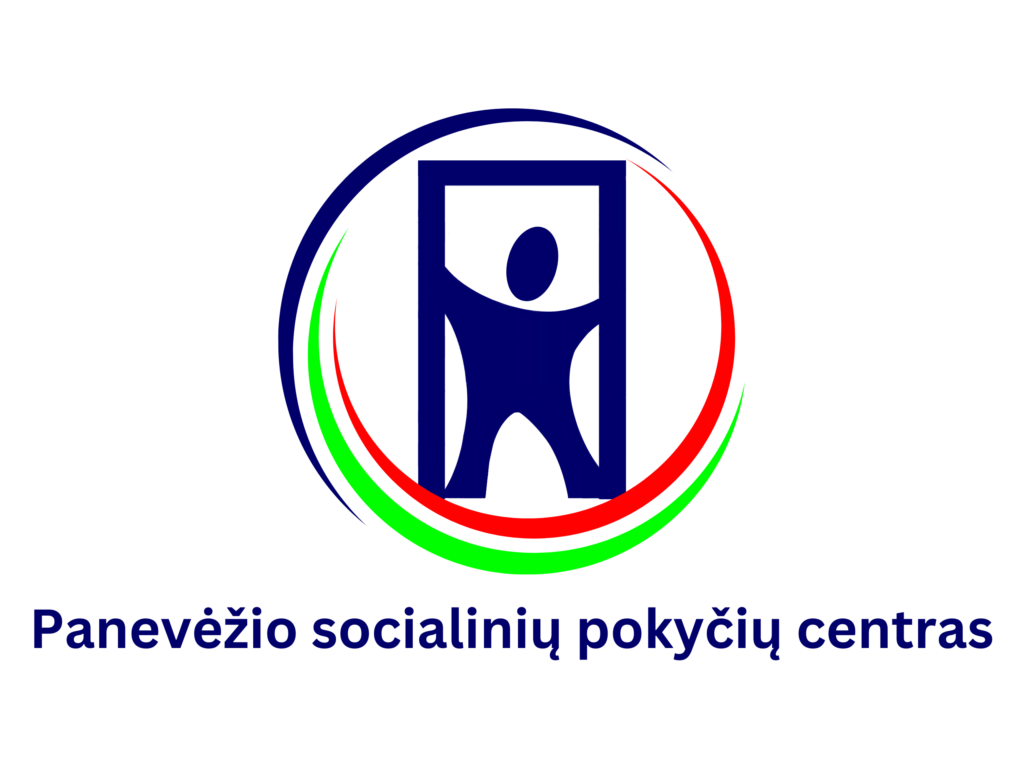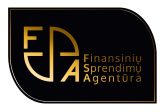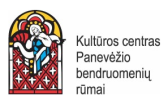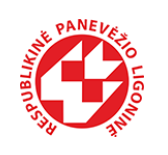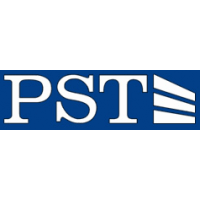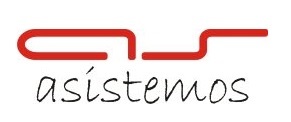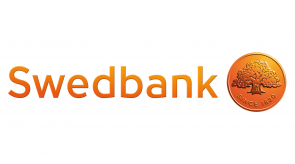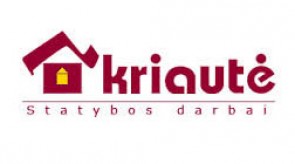2024/2025 spring (Faculty of Social Sciences)
Erasmus+ Faculty of Social Sciences programs:
ACCOUNTING
| Subject | Credit | Short description of the subject |
|---|---|---|
| Financial Markets | 3 | Students will get acquainted with essence of financial markets, participants and their behavior. During the course students will be taught to understand finance market impact to economics, variety of financial instruments analyzed, advantages and disadvantages of stock explained. Students will be introduced to analysis methods used in financial markets enabling to define market tendencies. |
| Management Accountancy | 6 | Students will get acquainted with management accountancy methods and will learn how to use them. Will learn to control subject expenses, calculate costs, plan activity, prepare detailed activity budgets. Will prepare management accountancy reports; Will use information acquire methods; Will evaluate accuracy of information and reliability; Will use financial analysis methods; Will systematize management accountancy results; Will manage money flows; Will know activity planning methods, Will prepare subject’s activity budgets. |
| Basics of Accounting | 6 | Subject oriented to accounting information and process concept and accounting management basics. Subject studies will help students understand used in the accounting assets, equity and liabilities concepts features. During the studies students will register economical facts in accountancy registers, will systematize, perform corrective entries, will close the income and expense accounts and prepare financial reports. |
| Total: | 15 | |
| Common Subjects for all Study Programs: | ||
| Applied Mathematics | 4 | Mathematical literacy is developed during the subject studies. Basics of this subject will help to learn economical tasks mathematical models formation and analysis, problems will be investigated, financial mathematical tasks solved, rational solutions found and results assessed critically. |
| Professional Foreign Language | 6 | To be able to communicate and cooperate in foreign language in professional activity, be able to receive and transfer information in foreign language. |
| Multimedia and Computer Design | 3 | Students develop knowledge and skills to creatively and effectively communicate ideas through an understanding of significant software, techniques and theories of design. Courses may include subjects like design awareness, design experience and computer modeling. A concentration in design management is offered. |
| Fundamentals of entrepreneurship | 3 | Gives a clear exposition of the theory and practice of entrepreneurship. It exposes the students to the entrepreneurial culture and industrial growth. The intricate theories involved in entrepreneurship are explained in a step-by-step manner, the thorough discussion on promotion of venture and raising of funds is aimed at enabling the potential entrepreneurs to set up and successfully manage their own small business units. |
| Total: | 16 | |
| ALL TOTAL: | 31 | |
PRE-SCHOOL AND PRE-PRIMARY EDUCATION
| Subject | Credit | Short description of the subject |
|---|---|---|
| General and Development Psychology | 6 | The goal of the subject is to deliver the knowledge about psychology science concept, definitions and biological psychology basics, structure of mind. To develop understanding of cognitive processes, personality and its distinctiveness, develop ability to understand learner as universal psychic, social individual, understand its needs. To educate cooperation and communication skills based on individual characteristics. To form ability to evaluate self and others, plan, project possible problem solving and assistance ways. To educate professional communication culture and motivation. To give possibility for students to acquire knowledge about age periods’ development peculiarities. To help understand heredity, environment, nature and education problems, to be able to estimate development crises in various age development periods, to choose methods, ways and forms of children socialization. |
| Visual expression | 3 | Students will be able to identify different children age periods, their previous experiences, reflecting in their visual expression, analyze and use pre-school and pre-primary education regulations and didactic provisions; plan and organize individual and group children’s art and constructional activity with creative selection of learning methods; apply theoretical knowledge and practical skills developing children’s color, graphic, spatial-space, volumetric and forming visual harmonization principles; plan of art and design to provide operational integration and correlation to other areas of activity, to assess individual children’s visual experience, plastic expression, knowledge qualitative change; demonstrate the practical expression of various technological character abilities. |
| Cognition of the Environment | 3 | Students will understand the patterns of cognitive and psychosocial development of preschool children. They will be able to describe the conditions (environment and tools) suitable for the development of the child’s individuality, taking into account the child’s age, needs, interests, cultural characteristics and cognitive style. Be able to model, differentiate and individualise the content of environmental cognitive education, being aware of its integrity. Be able to describe methods of social and cultural integration of children. Students will acquire the skills for creative-complex environmental cognition education. Be able to select forms, methods and means of developing environmental awareness, taking into account the content of education and the characteristics of the age groups, model children’s activities according to the principles of logic, coherence and systematicity. Students will be able to organise cognitive and exploratory activities, understand the impact of environmental factors on health and safety. |
| Integrated Practice in Pre-school Groups (3-5 years) | 6 | Students will be able to model and create a continuous pre-school educational content according to each child’s needs and cognitive styles, providing educational approaches, methods, interpret theoretical knowledge and adapt it in practice; design a favourable educational environment model; to apply various work with parents when communicating and collaborating with the learners’ family. |
| Total: | 18 | |
| Common Subjects for all Study Programs: | ||
| Applied Mathematics | 4 | Mathematical literacy is developed during the subject studies. Basics of this subject will help to learn economical tasks mathematical models formation and analysis, problems will be investigated, financial mathematical tasks solved, rational solutions found and results assessed critically. |
| Professional Foreign Language | 6 | To be able to communicate and cooperate in foreign language in professional activity, be able to receive and transfer information in foreign language. |
| Multimedia and Computer Design | 3 | Students develop knowledge and skills to creatively and effectively communicate ideas through an understanding of significant software, techniques and theories of design. Courses may include subjects like design awareness, design experience and computer modeling. A concentration in design management is offered. |
| Fundamentals of entrepreneurship | 3 | Gives a clear exposition of the theory and practice of entrepreneurship. It exposes the students to the entrepreneurial culture and industrial growth. The intricate theories involved in entrepreneurship are explained in a step-by-step manner, the thorough discussion on promotion of venture and raising of funds is aimed at enabling the potential entrepreneurs to set up and successfully manage their own small business units. |
| Total: | 16 | |
| ALL TOTAL: | 34 | |
INTERNATIONAL BUSINESS
| Subject | Credit | Short description of the subject |
|---|---|---|
| Creative strategies | 3 | Students will develop their creativity and strategic thinking skills to solve contemporary business problems. Students will be able to develop creative strategies, implement them consistently and successfully implement an overall business strategy in the light of international market changes. Students will learn and apply creative problem-solving techniques to succeed in a multicultural business environment. |
| Human resources management | 3 | It is the strategic approach to the effective management of people in a company or organization such that they help their business gain a competitive advantage. It is designed to maximize employee performance in service of an employer’s strategic objectives. |
| Marketing and Supply Chain Management | 6 | The subject explores how companies create value for customers through effective marketing strategies and by optimizing the flow of goods, services, and information from suppliers to consumers. It emphasizes the integration of marketing efforts with supply chain processes to ensure efficiency, customer satisfaction, and competitive advantage. The subject also addresses challenges like demand forecasting, inventory management, and global logistics coordination to meet market needs efficiently. |
| Management Information Systems | 3 | The subject focuses on how organizations use technology, people, and processes to manage information effectively and support decision-making. The subject covers topics like data management, system design, and the use of software tools to improve business operations. It also emphasizes the strategic role of MIS in enhancing communication, efficiency, and competitive advantage in modern organizations. |
| Total: | 15 | |
| Common Subjects for all Study Programs: | ||
| Applied Mathematics | 4 | Mathematical literacy is developed during the subject studies. Basics of this subject will help to learn economical tasks mathematical models formation and analysis, problems will be investigated, financial mathematical tasks solved, rational solutions found and results assessed critically. |
| Professional Foreign Language | 6 | To be able to communicate and cooperate in foreign language in professional activity, be able to receive and transfer information in foreign language. |
| Multimedia and Computer Design | 3 | Students develop knowledge and skills to creatively and effectively communicate ideas through an understanding of significant software, techniques and theories of design. Courses may include subjects like design awareness, design experience and computer modeling. A concentration in design management is offered. |
| Fundamentals of entrepreneurship | 3 | Gives a clear exposition of the theory and practice of entrepreneurship. It exposes the students to the entrepreneurial culture and industrial growth. The intricate theories involved in entrepreneurship are explained in a step-by-step manner, the thorough discussion on promotion of venture and raising of funds is aimed at enabling the potential entrepreneurs to set up and successfully manage their own small business units. |
| Total: | 16 | |
| ALL TOTAL: | 31 | |
LOGISTICS
| Subject | Credit | Short description of the subject |
|---|---|---|
| Transport and Freight Logistics | 6 | Planning, management, and optimization of the movement of goods and materials across various transportation modes. It covers key topics like supply chain integration, route planning, inventory management, and the coordination of shipping processes. The subject emphasizes efficiency, cost control, and sustainability in managing global freight operations to ensure timely and secure delivery of goods. |
| International Logistics | 3 | Management and coordination of global supply chains, emphasizing the movement of goods across international borders. It covers key topics such as customs regulations, global transportation modes, trade compliance, in cross-border logistics. The subject also highlights the challenges of global logistics, including cultural differences, exchange rates, and geopolitical factors that impact the efficient flow of goods internationally. |
| Risk Management and Insurance | 3 | There are aspects related to logistics that require careful planning before any risks and liabilities are assumed in the sales contract, such as: Establishing and agreeing upon the exact point of delivery in the destination country. Physical risks associated with the operation (weather conditions, theft, looting, etc.).Performing an in-depth evaluation of the most appropriate Incoterms 2022 rules to suit the logistical complexity of the operation. The benefits of using a reliable international logistics operator to control management of the shipping. The need for insurance coverage for the entire logistics process throughout the shipping chain. These questions are deeply discussed. |
| Modelling of Business Processes | 3 | The subject involves analyzing, designing, and optimizing a company’s workflow to improve efficiency and meet business objectives. It uses tools like flowcharts and diagrams to visualize processes, helping to identify bottlenecks, redundancies, and areas for improvement. This subject provides students with the skills to systematically represent and improve business operations, aligning processes with strategic goals. |
| Statistical Data Analysis | 3 | Methods and techniques used to collect, organize, and interpret data for making informed decisions. It covers topics such as probability, hypothesis testing, regression analysis, and data visualization to analyze trends and patterns. The subject emphasizes the application of statistical tools to solve real-world problems and enhance decision-making in various fields like business, science, and social research. |
| Total: | 18 | |
| Common Subjects for all Study Programs: | ||
| Applied Mathematics | 4 | Mathematical literacy is developed during the subject studies. Basics of this subject will help to learn economical tasks mathematical models formation and analysis, problems will be investigated, financial mathematical tasks solved, rational solutions found and results assessed critically. |
| Professional Foreign Language | 6 | To be able to communicate and cooperate in foreign language in professional activity, be able to receive and transfer information in foreign language. |
| Multimedia and Computer Design | 3 | Students develop knowledge and skills to creatively and effectively communicate ideas through an understanding of significant software, techniques and theories of design. Courses may include subjects like design awareness, design experience and computer modeling. A concentration in design management is offered. |
| Fundamentals of entrepreneurship | 3 | Gives a clear exposition of the theory and practice of entrepreneurship. It exposes the students to the entrepreneurial culture and industrial growth. The intricate theories involved in entrepreneurship are explained in a step-by-step manner, the thorough discussion on promotion of venture and raising of funds is aimed at enabling the potential entrepreneurs to set up and successfully manage their own small business units. |
| Total: | 16 | |
| ALL TOTAL: | 34 | |
BUSINESS MANAGEMENT
| Subject | Credit | Short description of the subject |
|---|---|---|
| Marketing basic | 3 | To provide marketing knowledge and practical skills, applying them to concrete actions in practical activities that can increase sales and build a positive corporate image. |
| Basics of economics | 3 | To provide competence in economic thinking, skills to navigate and operate successfully in a constantly changing environment in the economic environment, developing the ability to reason on economic topics, understanding how it works economic laws, conveying to students the modern supporting areas of economic science – basics of microeconomics, macroeconomics. |
| Sociology | 3 | To introduce students to the theoretical and practical aspects of sociology, to shape their sociological thinking, the ability to analyze the social world, to understand and be able to connect the social, economic, political and cultural environments, analyze and evaluate the phenomena of social life, develop introspection, criticality of everyday life in terms of knowledge. |
| Psychology | 3 | To acquaint students with the basic concepts of psychological science; provide theoretical knowledge, helping to understand and evaluate the phenomena of everyday life, to think critically; to know oneself, to understand others people, to build and maintain good relationships. To develop students’ ability to care for themselves and the people around them psychological well-being, understand crises, effectively overcome them and apply psychological knowledge to achieve personal, professional, social goals. |
| Basics of management | 3 | To provide students with the knowledge of management science and the ability to apply the principles and theories of management science, which based on this, students will be able to plan, organize, motivate and control what is necessary to achieve the goals personnel and make appropriate decisions regarding personnel, production, innovation, changes, and organizational culture in management areas. |
| Total: | 15 | |
| Common Subjects for all Study Programs: | ||
| Applied Mathematics | 4 | Mathematical literacy is developed during the subject studies. Basics of this subject will help to learn economical tasks mathematical models formation and analysis, problems will be investigated, financial mathematical tasks solved, rational solutions found and results assessed critically. |
| Professional Foreign Language | 6 | To be able to communicate and cooperate in foreign language in professional activity, be able to receive and transfer information in foreign language. |
| Multimedia and Computer Design | 3 | Students develop knowledge and skills to creatively and effectively communicate ideas through an understanding of significant software, techniques and theories of design. Courses may include subjects like design awareness, design experience and computer modeling. A concentration in design management is offered. |
| Fundamentals of entrepreneurship | 3 | Gives a clear exposition of the theory and practice of entrepreneurship. It exposes the students to the entrepreneurial culture and industrial growth. The intricate theories involved in entrepreneurship are explained in a step-by-step manner, the thorough discussion on promotion of venture and raising of funds is aimed at enabling the potential entrepreneurs to set up and successfully manage their own small business units. |
| Total: | 16 | |
| ALL TOTAL: | 31 | |
If you have any other questions please contact with the Panevėžio kolegija/State Higher Education Institution International office:
| HEAD OF INTERNATIONAL RELATIONS, MARKETING AND PROJECTS DEPARTMENT Laima Mikalajūnienė Laisvės sq. 23, Panevėžys, LITHUANIA LT-35200 Tel. +370 45 433 044 E-mail: laima.mikalajuniene@panko.lt |
COORDINATOR OF INTERNATIONAL RELATIONS Jovita Kaziukonytė-Levanienė Tel. +370 45 431 801 Mob. +370 609 751 14 E-mail: jovita.kaziukonyte@panko.lt inter@panko.lt |

